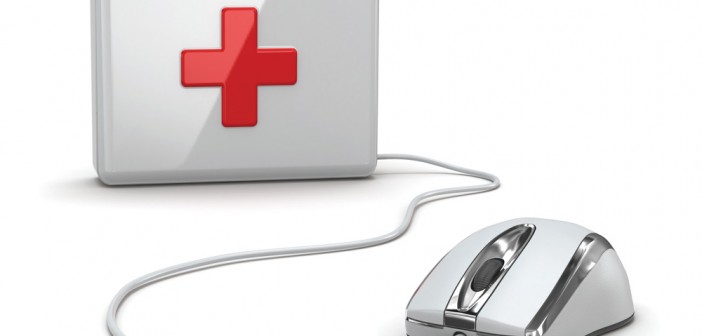Unfortunately, much of the health information on the Internet is inaccurate or incomplete.
If you use the Internet, chances are you’ve searched for health information or attempted to find a diagnosis for you or someone you know. If you work in healthcare, chances are you’ve used the Internet to help your patients.
In fact, according to the Pew Research Center, 80% of Internet users have used the Internet to search for health related topics, and NBC News reports that 35% of U.S. adults have used the Internet to diagnose themselves or someone they know. Regarding physicians, a survey on AMEDNews.com reported that 68% of U.S. physicians use the Internet to gather health, medical, or prescription drug information. The bottom line is that we all use the Internet for health information. The question is, what do we do with that info?
On one hand, those of us who work in healthcare appreciate patients who take charge of their health; but, search engines can also steer people the wrong way when it comes to their health. For example, Pew Research Center found that when patients took their Internet diagnosis to a clinician, that diagnosis was confirmed or partially confirmed 43% of the time, but 18% of the time the medical professional disagreed with it. Another 35% didn’t seek medical care at all.
We know the digital age is here to stay, and health literacy is important, not only for understanding information but for helping patients make good decisions about care. In fact, the AMA Foundation cites health literacy as the strongest predictor of a person’s health status. So how do we help patients make sense of online health info? We can help them sift through the good and the bad and provide online resources and apps that are helpful in managing their care. Clinicians are the trained experts, and they can direct patients to reliable resources in order to help them make informed decisions.
Unfortunately, much of the health information on the Internet is inaccurate or incomplete. General symptoms can scare people causing them to assume they have every disease possible. So where should we turn for reliable online info? In general, local hospitals and physician websites are a good source of local information. Other sites that are reliable are large universities and non-profit organizations like MayoClinic.com, WebMD.com, MedlinePlus.gov, Cancer.org and Diabetes.org.
For-profit organizations, such as pharmaceutical companies and medical vendors, are more biased because they try to sell their products and services.
In addition to websites, there are now more mobile apps being developed to help patients manage their care. Apps like CareZone, Good Rx, and WebMD help patients manage their medications, document and share symptoms, and schedule reminders for appointments. They can also help patients find the best prices on medications, set medication schedules, help manage family members’ medications, and check for local pharmacies and physicians. All of these apps are available on iOS and Android.
Another smart option for information is found on YouTube channels, which have become great avenues for health info. Some of the best channels are the American Heart Association, American Cancer Society, American Diabetes Association, and the Centers for Disease Control (CDC). Here, you can search for videos on how to take an accurate blood pressure or how to create a healthy menu to help manage diabetes or heart disease. These videos can also serve as a source of support and encouragement.
Whether patients bring reliable or unreliable information to clinicians, it’s a great opportunity to have conversations with patients and help increase their health literacy. After all, the patient ended up in the physician’s office for a reason. This is just another chance for physicians to remain the most trusted source for health information, build relationships with their patients and, ultimately, help patients take charge of their own health!
About the Author: Traci J. Kim, MA, CMPE is the administrator for Complete Eye Care in Flint. She also teaches Cultural Competence in Healthcare at University of Michigan Flint. She holds a Bachelor’s Degree in Journalism from University of Iowa, a Master’s Degree in Health Communication from Michigan State University and is a Board-Certified Medical Practice Executive through MGMA. She is committed to the practices of cultural competence and health literacy to improve the quality of care and help patients become proactive about their health.














